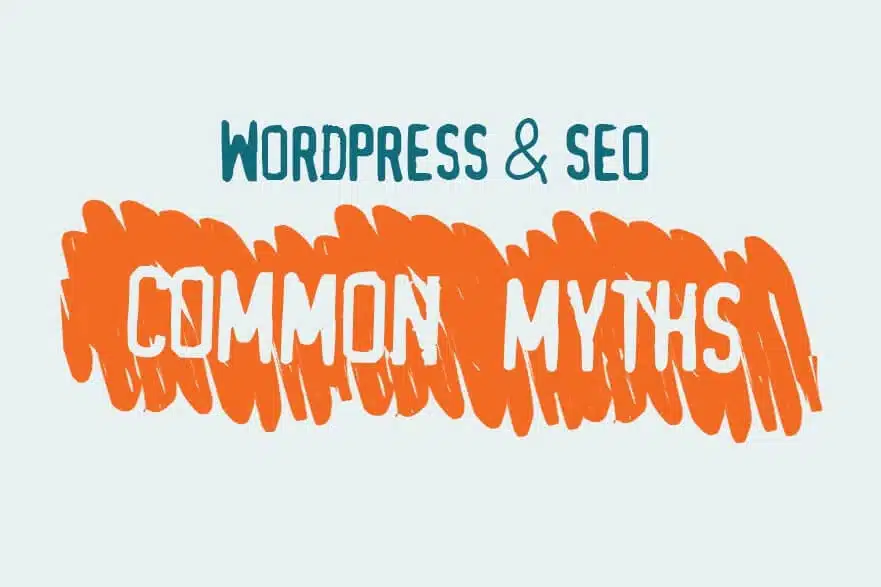

WordPress is the engine behind 1 in 4 websites today. Despite that huge number, a lot of people don’t have any idea how SEO for WordPress works. Search engine optimization isn’t an easy task to manage, but it can make a huge difference in your website’s performance.
Here are our responses to 5 common myths and misconceptions about WordPress SEO.
Myth #1: WordPress isn’t SEO-friendly.
False—WordPress is incredibly SEO-friendly! In fact, a lot of the time, WordPress is reasonably optimized before even beginning to work on your website.
WordPress has a number of quality SEO plugins, and makes optimizing for search engines simple and straightforward. We’re honestly not sure where people are getting the idea that WordPress and Google don’t get along—but it may have something to do with WordPress competitors spreading false information.
Myth #2: WordPress is SEO-ready “straight out of the box”.
Not exactly. Even though WordPress is better out of the box than other platforms, you still need to do some work with it.
This myth survives thanks to the shady practice of business owners or online marketers preying on the fact that very few people know how to properly optimize for search engines. People hear that a WordPress theme is ready to go, and end up with disappointing results.
Myth #3: I can just add an SEO plugin to WordPress and it does all the work.
Again, no. To fully optimize your site, you’ll need to add meta descriptions, edit handles, add alt-text on images, and select keywords to rank for.
This myth exists simply because many plugins make it easier to manage SEO, but you still need to give plugs some direction. Examples of better WordPress SEO plugins include WordPress SEO by Yoast and All-In-One SEO Pack.
Myth #4: Free WordPress themes are the same as Premium/Custom themes for SEO ranking.
This common misconception can cost good, hardworking people from a good ranking position. The reason why a free theme might hurt your ranking is because it may include spammy links, have low security, or may not be updated frequently.
Among several other potential issues, some free themes should be scrutinized and researched before you choose to use them.
Myth #5: With back-end SEO sorted out, I don’t need to worry about website content.
No chance. You still need to consider many standard SEO practices, like copy length and keyword choice. Most importantly, content quality matters. If people click your site and then leave immediately, Google and other search engines punish you for it.
The bottom line? Create something that people actually want to watch or read or buy, and then promote it organically through SEO, social media, and other inbound marketing practices. Also, don’t forget to regularly monitor your SEO rankings, and perform updates as needed.
Do you have any questions about WordPress SEO? Ask us a question in the comments!
Recent Articles
Write For Us
Think you’ve got a fresh perspective that will challenge our readers to become better marketers? We’re always looking for authors who can deliver quality articles and blog posts. Hundreds of your peers will read your work, and you will level up in the process.Ready to grow? Say Hello







